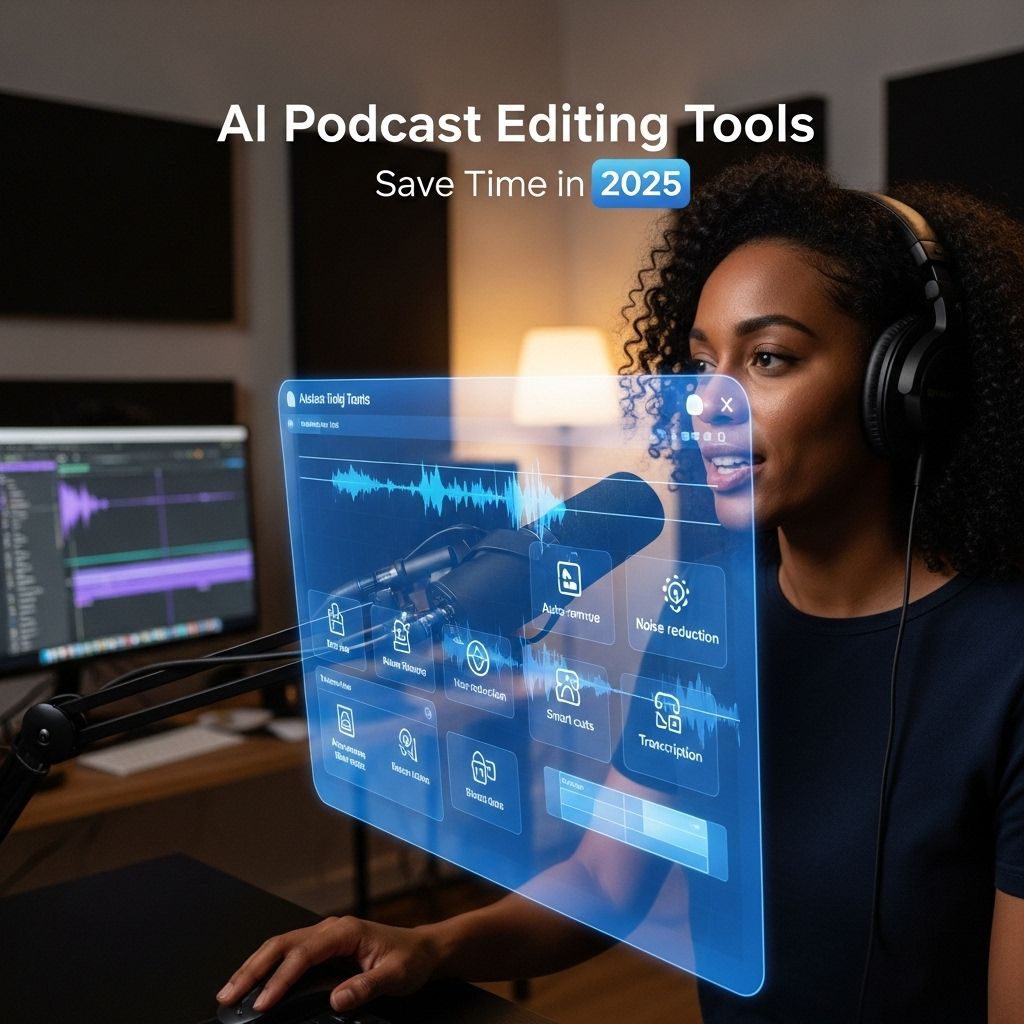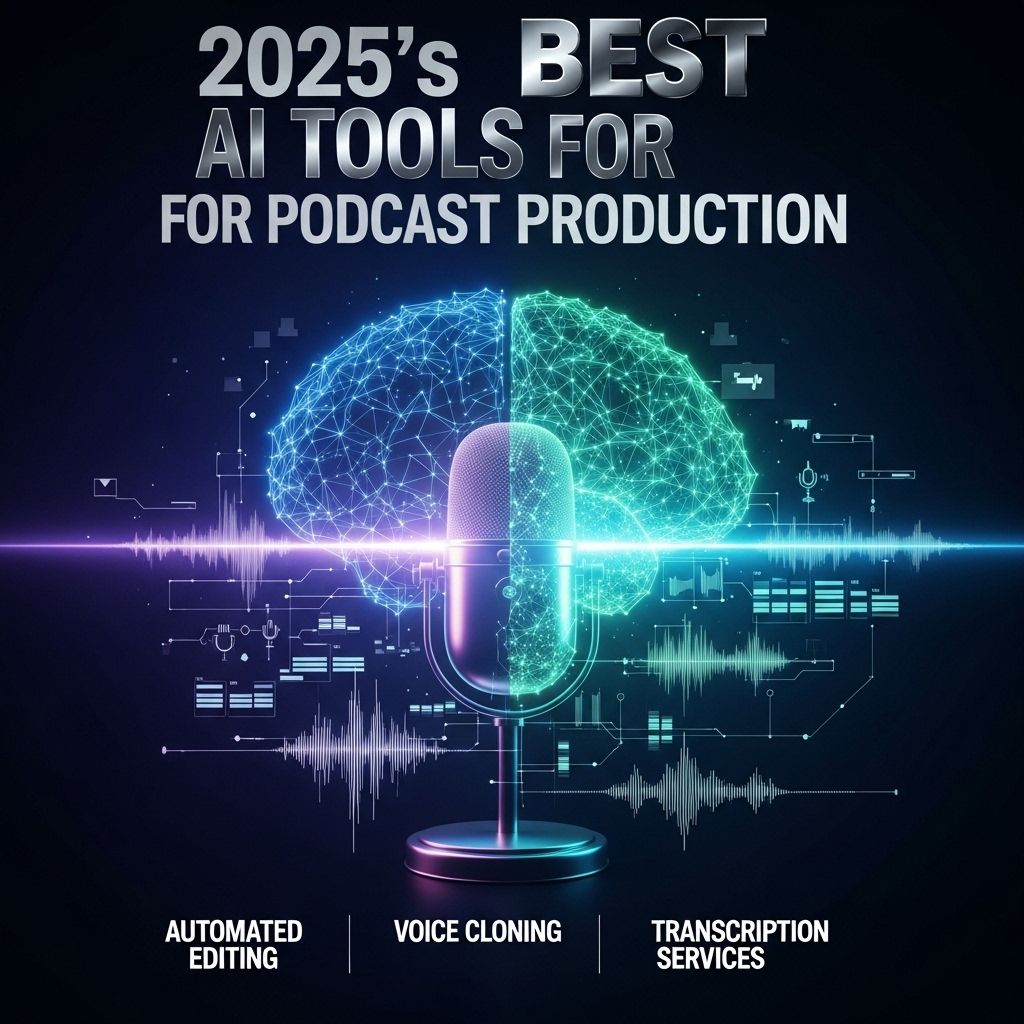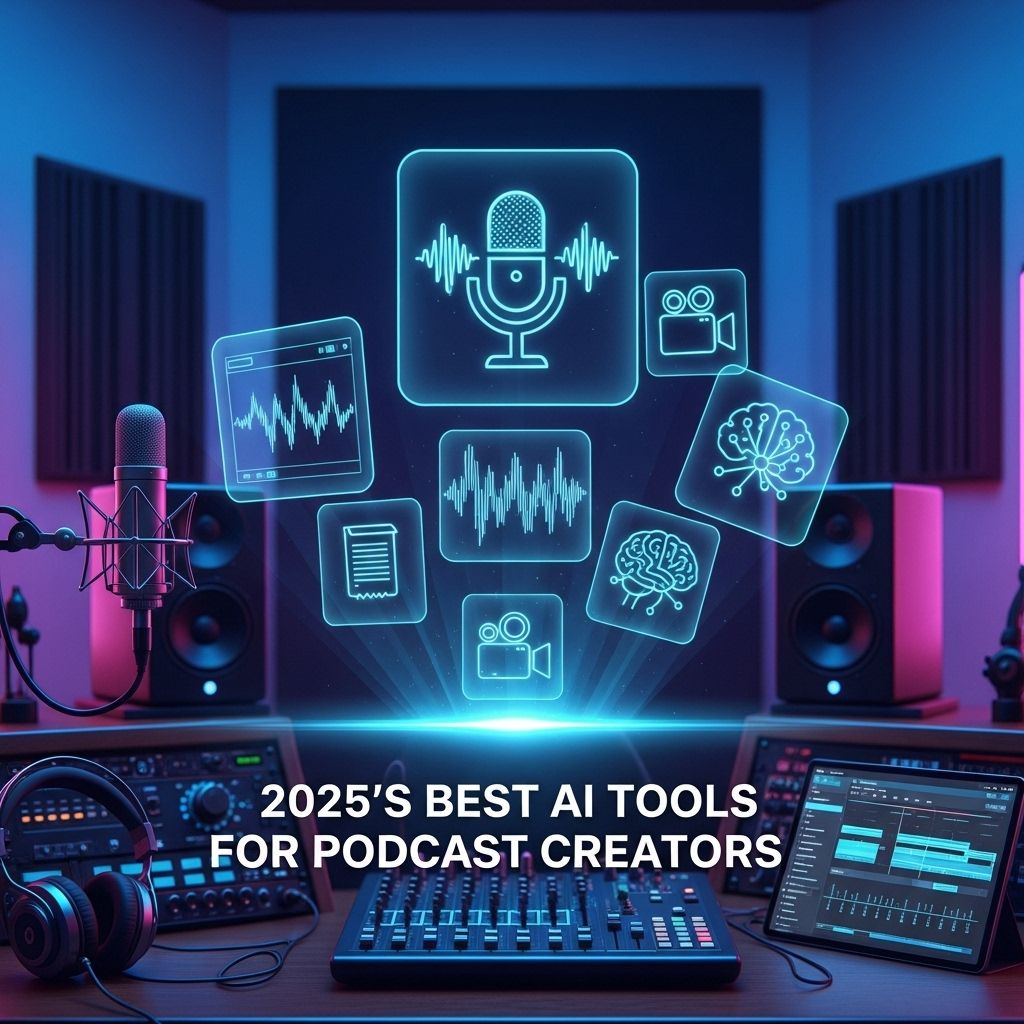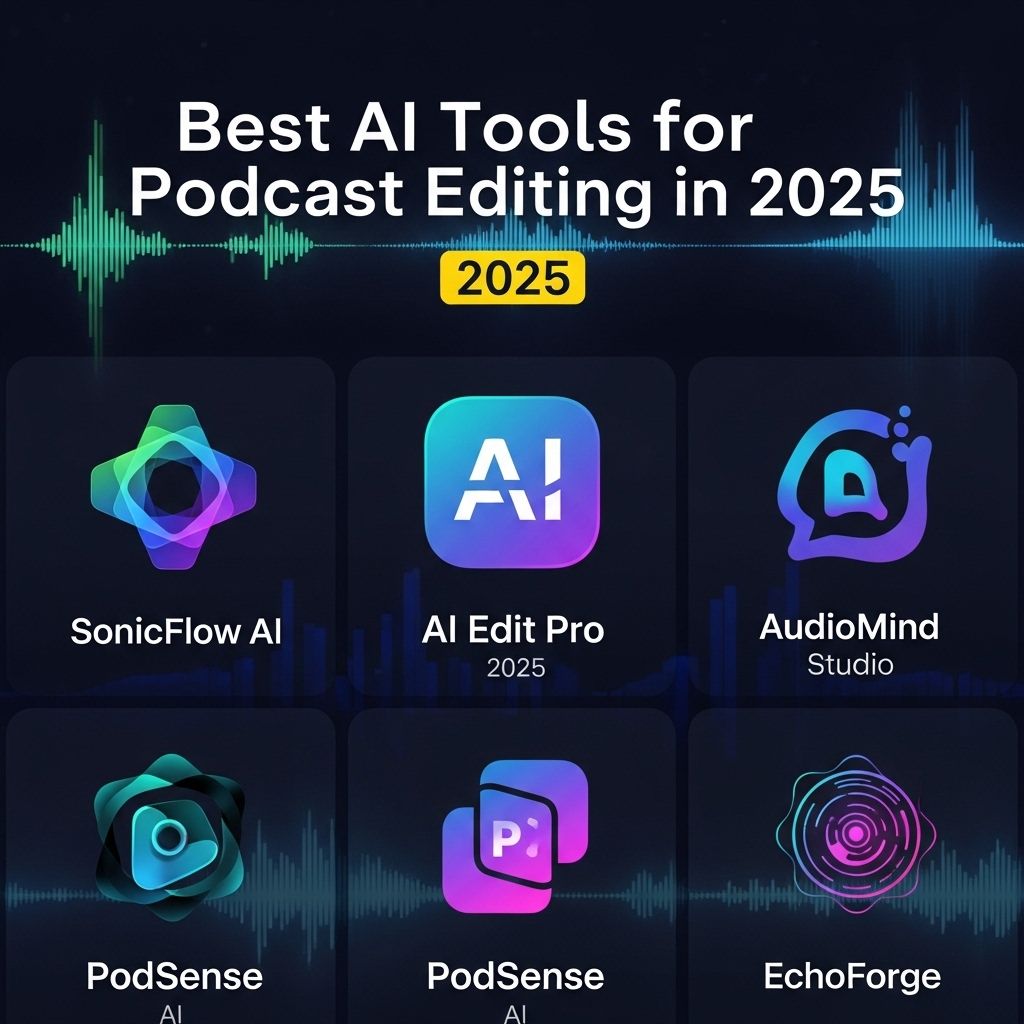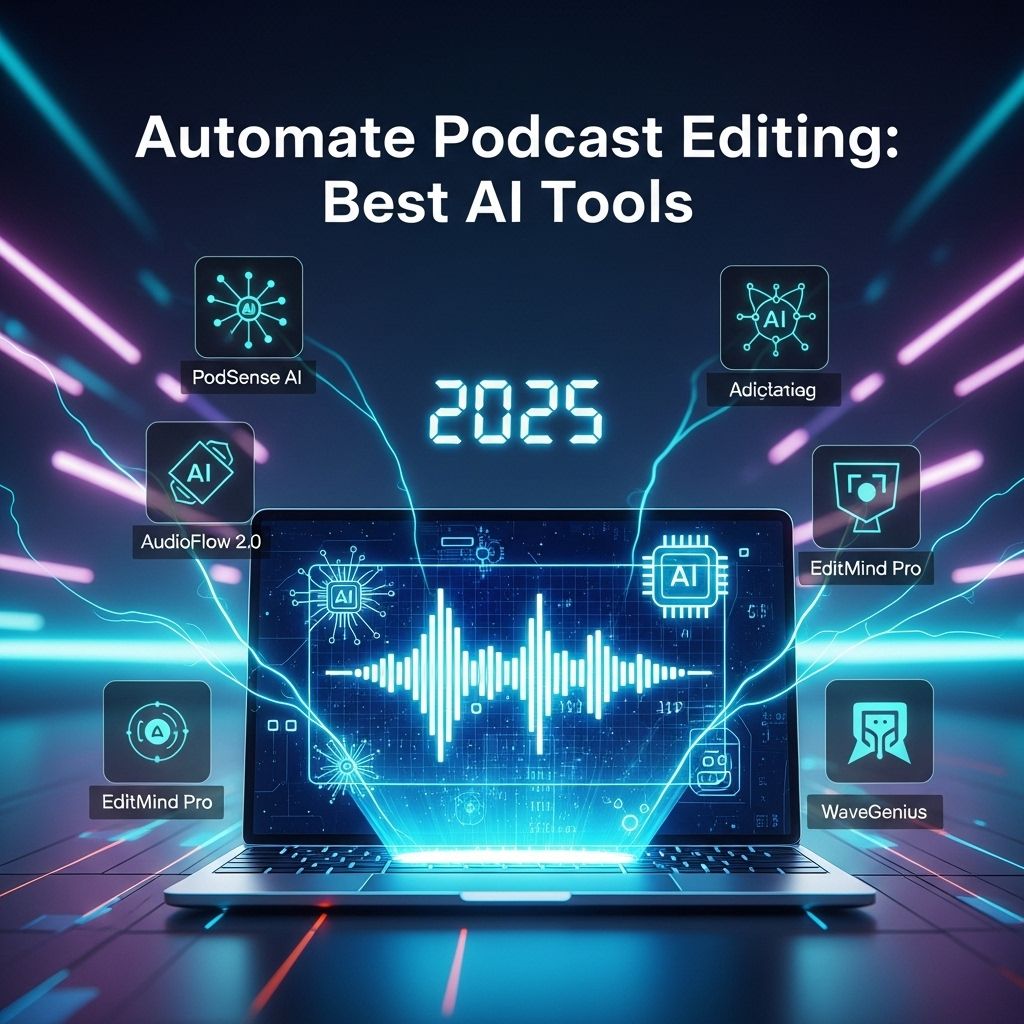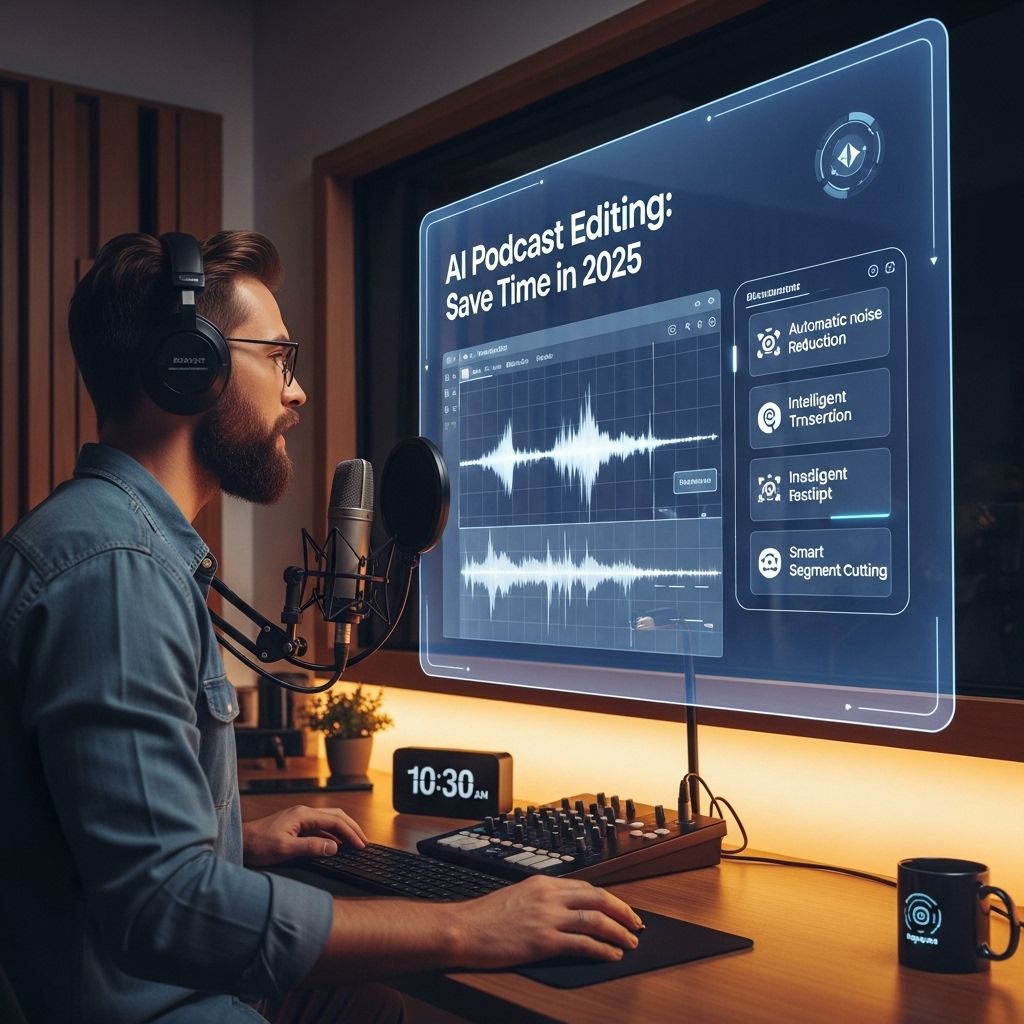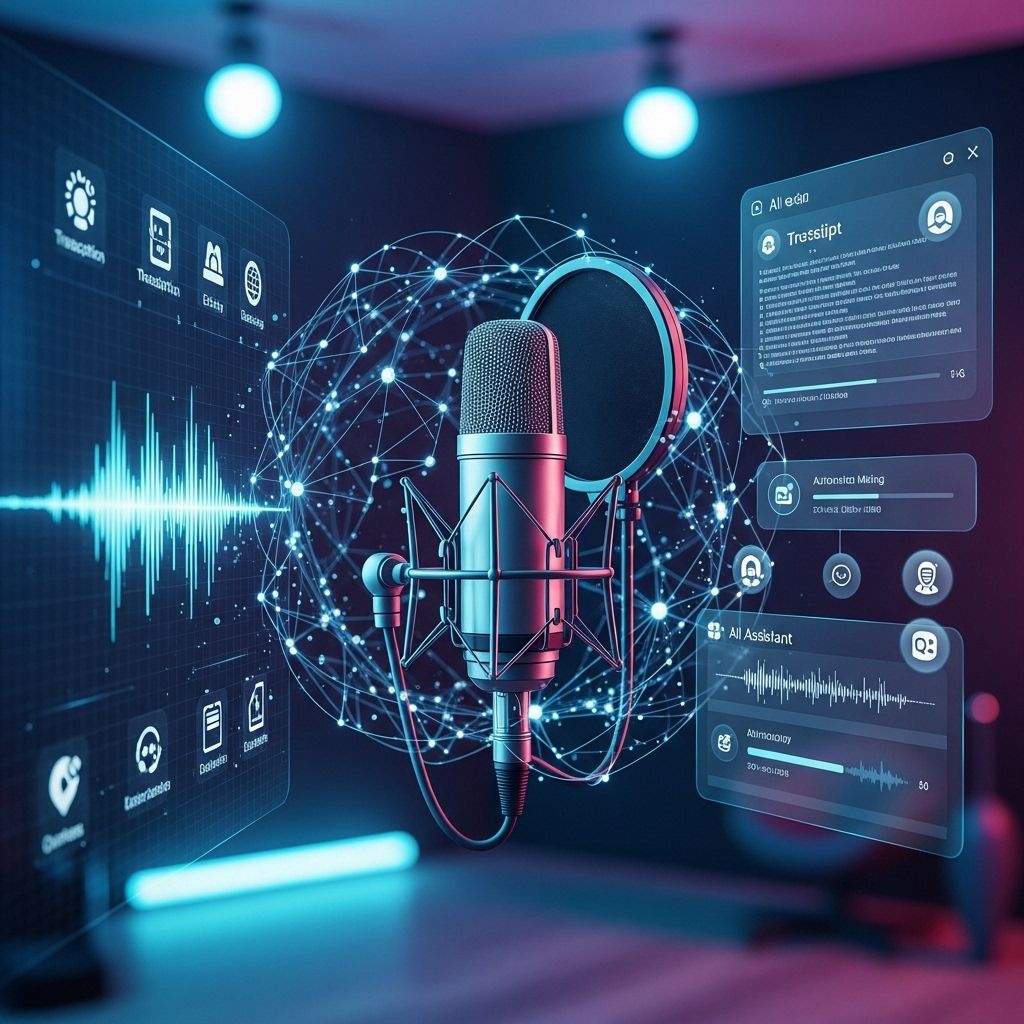Revolutionize Your Podcast Editing with AI
Discover how AI technology can transform your podcast editing process, saving time and enhancing audio quality for a professional sound.
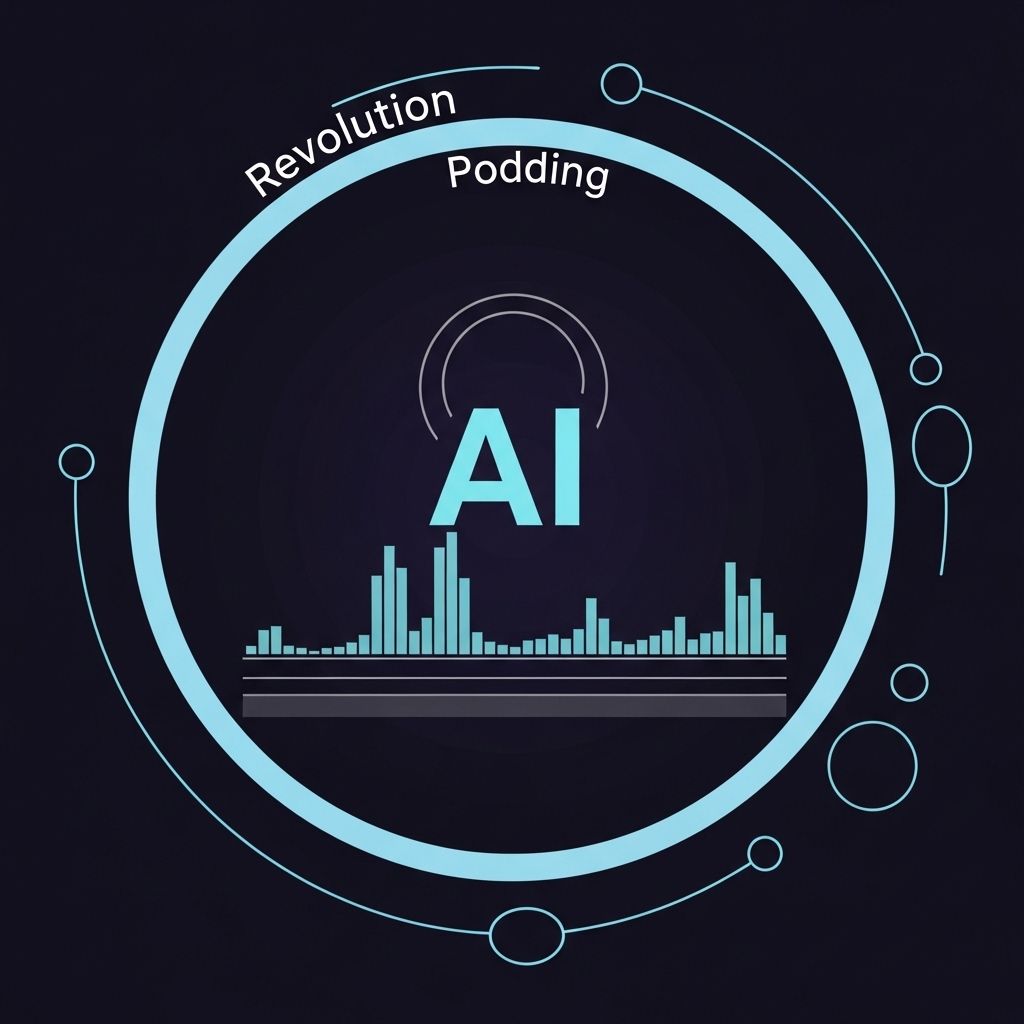
In the ever-evolving landscape of digital content creation, podcasting has emerged as a powerful medium for storytelling, education, and entertainment. With the surge in popularity of podcasts, creators are constantly seeking ways to improve their production processes. One of the most exciting developments in this realm is the integration of artificial intelligence (AI) into podcast editing. This article explores how AI can transform the way podcasters edit and produce their shows, making the process faster, more efficient, and ultimately, more enjoyable.
Table of Contents
Understanding the Role of AI in Podcast Editing
AI technology is reshaping various industries, and podcasting is no exception. By automating tedious tasks, AI tools allow podcasters to focus more on content creation rather than the mechanical aspects of editing. Here are some key areas where AI is making a significant impact:
- Audio Enhancement: AI algorithms can analyze audio files to reduce background noise, balance sound levels, and enhance overall audio quality.
- Transcription Services: AI-driven transcription tools can convert spoken dialogue into text, providing podcasters with scripts for editing and content creation.
- Smart Editing: AI can identify and suggest edits based on predetermined criteria, such as removing filler words or silences.
Benefits of Using AI for Podcast Editing
Integrating AI into podcast editing workflows presents numerous advantages. Here are some benefits you can expect:
1. Time Efficiency
Manual editing can be a time-consuming process, especially for those new to podcasting. AI tools can expedite the editing phase, allowing creators to publish episodes more frequently. For instance, AI can:
- Quickly remove dead air and long pauses.
- Simplify the process of cutting and splicing audio segments.
- Automatically enhance audio quality, saving hours of labor.
2. Improved Audio Quality
High-quality audio is crucial for retaining listener engagement. AI technologies can analyze audio tracks and make adjustments that might be overlooked during manual editing. Key features include:
| AI Tool | Feature | Benefit |
|---|---|---|
| Descript | Overdub | Create realistic voiceovers for corrections. |
| Auphonic | Audio leveling | Consistent sound levels across all episodes. |
| Adobe Podcast | Noise reduction | Minimized background noise for clearer dialogue. |
3. Enhanced Creativity
With AI handling the more mundane aspects of editing, podcasters have more time to focus on creativity. This can lead to:
- More innovative content ideas.
- Greater experimentation with formats and styles.
- Increased collaboration with other creators.
AI Tools for Podcast Editing
With a growing array of AI tools available, selecting the right one can be daunting. Here are some popular options that podcasters should consider:
1. Descript
Descript is a powerful tool that combines transcription, audio editing, and video editing capabilities. Its standout feature, Overdub, allows users to create voice clones for seamless corrections or additions. This makes it particularly useful for podcasters looking to maintain a consistent audio experience.
2. Auphonic
Auphonic specializes in automated audio post-production. It automatically analyzes and optimizes audio files, providing features such as:
- Automatic leveling of voice tracks.
- Encoding and file format conversion.
- Background noise and hum reduction.
3. Adobe Podcast
Adobe’s AI-powered podcast editing tool focuses on enhancing audio quality with features like noise reduction and sound optimization. Its integration with Adobe’s suite of creative tools makes it an excellent choice for podcasters already using Adobe products.
Case Studies: Successful Integrations of AI in Podcasting
To illustrate the impact of AI on podcast production, let’s explore a couple of case studies where creators have successfully implemented these technologies.
Case Study 1: Radiolab
Radiolab, a well-known podcast that explores scientific and philosophical questions, began utilizing AI tools for their editing process. By integrating AI-driven audio enhancement, they were able to:
- Reduce editing time by 30%.
- Achieve professional-grade audio quality.
- Focus more on research and storytelling.
Case Study 2: The Joe Rogan Experience
The Joe Rogan Experience is one of the most popular podcasts globally. They have started using AI for content transcription and editing, allowing them to:
- Generate show notes quickly.
- Produce highlights for social media.
- Enhance listener engagement by providing transcripts.
The Future of Podcast Editing with AI
As technology continues to evolve, the landscape of podcast editing will undoubtedly change. Here are some trends to watch for:
1. Increased Personalization
AI will enable more personalized listening experiences, tailoring content recommendations based on audience preferences and behavior.
2. Real-time Editing Capabilities
Future AI tools may offer real-time editing features that allow podcasters to adjust audio quality and content during recording, creating a more dynamic production environment.
3. Enhanced Collaboration Tools
AI could facilitate better collaboration among creators, making it easier for teams to work together on projects from different locations. This is particularly important as remote work continues to be the norm.
Conclusion
AI is revolutionizing podcast editing by streamlining workflows, enhancing audio quality, and providing opportunities for increased creativity. As more podcasters embrace these technologies, they can expect better production efficiency and the ability to focus on what matters most: creating engaging and impactful content. The future of podcasting is bright, and AI is leading the charge.
FAQ
What is AI podcast editing?
AI podcast editing utilizes artificial intelligence technology to streamline the editing process, enhancing audio quality and automating repetitive tasks.
How can AI improve my podcast production?
AI can enhance your podcast production by reducing editing time, improving sound quality, and providing features like automatic noise reduction and voice enhancement.
Is AI podcast editing suitable for beginners?
Yes, AI podcast editing tools are designed to be user-friendly, making them accessible for beginners while still offering advanced features for experienced editors.
What are the benefits of using AI for podcast editing?
Benefits of using AI for podcast editing include faster turnaround times, consistent audio quality, cost-effectiveness, and the ability to focus more on content creation.
Can AI tools handle multi-track podcast editing?
Many AI podcast editing tools can handle multi-track audio, allowing for seamless integration of various audio sources while maintaining high quality.
Are there any limitations to AI podcast editing?
While AI podcast editing offers many advantages, it may not completely replace human creativity and nuanced editing decisions, requiring a balance between technology and personal touch.

